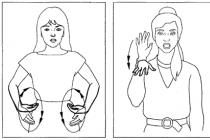An intern for your team? Valentina Mitrofanova, an expert in the field of personnel records management, explains how to properly formalize an employment relationship with an intern.
Employment contract: fixed-term or indefinite?
An intern is only called an intern - in fact, an employment contract must be concluded with him, as with any employee. Such an employment contract can be either fixed-term or indefinite.
As you know, an open-ended contract is concluded for an indefinite period. In Russian personnel records management, it is the open-ended contract that is most often used, since the conclusion of an employment contract for a certain period must be based on the grounds provided for in Article 59 of the Labor Code of the Russian Federation. If they are not there, then the employer, concluding fixed-term employment contracts, bears significant risks, including the recognition of such contracts as indefinite, as well as bringing them to administrative liability in accordance with Article 5.27 of the Code of the Russian Federation on Administrative Offenses.
However, an internship is exactly the case when both an open-ended and a fixed-term employment contract would be legal.
In accordance with Article 59 of the Labor Code of the Russian Federation, in order to perform work directly related to internships and vocational training, it is allowed to conclude a fixed-term employment contract with an employee. The contract is concluded for a certain period with just such a justification for urgency: “performing work directly related to the internship and professional training of the employee.” In this case, the period of validity of the employment contract is determined based on specific deadlines specified, for example, in the internship program. When the internship ends, the employment contract with the employee is terminated on the basis provided for in paragraph 2 of Article 77 of the Labor Code of the Russian Federation - expiration of the employment contract.
A fixed-term employment contract is also convenient and appropriate, for example, when performing temporary work for up to two months, seasonal work, or when performing the duties of a temporarily absent employee. In addition, in some cases, when concluding a fixed-term employment contract, a probationary period is not established (for example, if the contract period is less than 2 months).
Work record book: should an intern make an entry?
If an intern has worked for you for more than 5 days, you, according to current legislation, must make an appropriate entry in his work book, regardless of the duration of the employment contract. These are the requirements of Article 66 of the Labor Code of the Russian Federation.
When the internship is over...
As you know, interns behave differently at work: while some are performing their first labor feat, others spend time on social networks. Based on the results of the internship, the employer usually decides whether such an employee will be useful to the company.
Suppose you decide not to part with a smart student. In this case, they often talk about “transfer to staff,” but this is not entirely correct, because the trainee is already a full-time employee from the moment the employment contract is concluded. The employer simply signs an additional agreement with the employee recognizing the contract as indefinite. In this case, there is no need to make any additional entries in the work book, since the validity period of the employment contract is not displayed there. But it is impossible to conclude a new fixed-term employment contract, since there is no justification for the urgency - the internship is completed.
What if you decide not only to continue cooperation with the intern, but also to transfer him to another position? In the additional agreement, in addition to recognizing the employment contract as indefinite, it is necessary to indicate the new position of the employee. An entry is made in the work book about the transfer of an employee from one position to another, indicating the basis for such a transfer.
The opposite situation also happens: the results of the internship are considered unsatisfactory. In this case, the employment contract is simply terminated based on the expiration of its term - in accordance with paragraph 2 of part 1 of Article 77 of the Labor Code of the Russian Federation.
From March 1, 2017, the procedure for conducting internships at the workplace will change significantly.
On-the-job training and on-the-job training are similar procedures for many employers. This is precisely why internships in organizations are not taken seriously enough. In fact, both procedures are necessary to train the employee to perform their duties safely. And both are carried out before work begins. This is their similarity. But there are also significant differences. Thus, training with employees most often takes several hours. An internship involves several work shifts. The briefing is a short theoretical course on how to perform work safely, with demonstrations of practical examples. And during the internship, the employee performs assigned duties under the supervision of a mentor, learns to perform the upcoming work in practice, and studies production and technological processes.
For whom is on-the-job training a mandatory procedure?
On-the-job training remains mandatory for employees entering work in harmful and dangerous working conditions. This obligation is assigned to the employer in Article 225 of the Labor Code and clause 11.4 of GOST 12.0.004-2015, which comes into force on March 1, 2017. For example, electrical personnel, miners, metallurgists, oil refining industry workers, miners, etc.
When should you do an on-the-job internship?
From March 1, 2017, on-the-job training for managers, specialists, blue-collar workers and junior service personnel must be carried out:
When they start working;
When transferred to another place of work within the organization with a change in position or work performed;
To prepare for the possible replacement of a permanent employee during absence (illness, vacation, business trip);
For practical development of best practices and effective organization of labor protection work.
PREVIOUSLY: The internship was carried out when transferring to another job or when changing the type of equipment or switching to managing other equipment (brand of machine, crane, etc.).
Deadlines for on-the-job internships
From March 1, 2017, the duration of the internship is determined by the head of the department in which the internship employee works. It takes into account the employee’s level of education, qualifications, work experience and other important factors.
For blue-collar workers and junior service personnel who have the necessary qualifications and experience, the internship period should range from 3 to 19 work shifts;
If a blue-collar worker does not have work experience and relevant qualifications, then the internship period, including mastering the issues of labor protection and work safety, should be from 1 to 6 months.
For managers and specialists, the duration of the internship is determined by the employer. Depending on education, training and work experience - from 2 weeks to one month.
PREVIOUSLY: According to GOST 12.0.004-90, which is currently in force, on-the-job training is carried out during the first 2-14 shifts after the initial briefing.
Its duration depends on the nature of the work and the qualifications of the employee.
The document does not differentiate between deadlines for managers, specialists or blue-collar workers.
Attention! The current GOST allows management, in agreement with the labor protection service and the enterprise's trade union, to exempt from internship an employee whose work experience in his specialty is at least 3 years, if he moves from one workshop to another, and the nature of his work and the type of equipment does not change.
This point is not in the new document!
Question from employer: Is it necessary to conduct an on-the-job internship with travel agency employees who work in the office?
Answer: No no need. Only employees who will be engaged in work with harmful or dangerous working conditions must undergo on-the-job training after initial instruction (Article 225 of the Labor Code of the Russian Federation). Office workers do not fall into this category.
Who conducts on-the-job internships?
From March 1, 2017, internships for workers can be conducted by a work supervisor, an industrial training instructor, or another experienced worker who has been trained as an occupational safety instructor and has extensive practical experience.
As for managers and specialists entering the workforce, their internship can be carried out by a superior or another manager, whom the employer will appoint by decision.
PREVIOUSLY: To conduct the internship, the employer appointed by his order an internship supervisor from among senior employees or specialists.
Question from employer: Do we need to provide on-the-job training to an employee if he moves from one department to another?
Answer: You need to conduct an internship with an employee, but only if the working conditions at the new workplace are harmful or dangerous (Article 225 of the Labor Code of the Russian Federation). If this is not the case, then you can safely transfer the employee to another structural unit without an internship.
How does an on-the-job internship work?
GOST 12.0.004-2015, which comes into force on March 1, 2017, prescribes clear rules for conducting internships for the employer. It states that the internship supervisor must: -- Draw up internship programs and reflect in them specific tasks and deadlines, taking into account the employee’s education, training and work experience of the intern;
Familiarize the probationer with all employees of the department and working conditions.
During the internship, the new employee must learn the internal labor regulations, the main functions of the department and all the labor safety requirements when performing work;
During the internship, familiarize the intern with the package of documents required for work.
It must necessarily include the employee’s job description, regulations on the unit, internal standards and regulations, local regulations on labor protection and production safety;
Throughout the entire internship period, the supervisor must carefully monitor the work of the trainee, monitor and, if necessary, adjust his actions. After the internship is over, the manager must provide feedback on the internship in any form. The results of the internship are summed up by a specially created commission of the employer.
For blue-collar workers there is a qualification commission, and for managers and specialists there is a certification commission. She conducts a qualifying exam. The employer chooses the form himself. The task of the commission members is to assess the level of theoretical and practical training of the trainee, the level of his knowledge of labor protection requirements and draw up the appropriate protocol.
Attention! GOST 12.0.004-2015 does not have clear instructions on the composition and size of the commission. We recommend that you involve at least three people whose work experience and experience will allow them to complete the task assigned to them. If the members of the commission decide that the employee has successfully completed the internship, the head of the department or organization issues an order to allow the intern to work independently. If the results of the internship are negative, the employee should not be allowed to work independently. He must undergo a second internship within one month, after which he must once again pass a test of knowledge of labor protection requirements.
IMPORTANT!!! If an employee repeatedly fails to complete an internship at the workplace and receives an unsatisfactory assessment from the commission, the training organizer has the right to consider the issue of his suitability for the profession or position held.
What liability will the employer bear if he does not provide an on-the-job internship?
On-the-job training is one of the types of training an employee in safe methods and techniques for performing labor protection work. If an employer allows an employee to work without conducting an internship required by law, the GIT inspector may impose a fine during the inspection (Part 3 of Article 5.27.1 of the Code of Administrative Offenses of the Russian Federation): for officials - from 15,000 to 25,000 rubles, legal entities - from 110,000 to 130,000 rubles for each untrained employee.
Employer, established at the legislative level. But the law itself contains very little information regarding how such procedures should be carried out and how long the internship lasts. Therefore, it is worth understanding this phenomenon in more detail.
Why do you need an internship at a company?
In this case, it is worth using Articles 225, 212 of the Labor Code of the Russian Federation as support. They say that the main purpose of an internship is to provide the necessary knowledge and skills to a new employee. His training should be organized by an experienced mentor. This is especially important when ensuring compliance with labor safety standards.
An internship is often confused with one of the following:
- Student internship.
- Probation.
- Discipleship.
An internship order is issued immediately after the same document informing about employment. The testing time itself is included in the main length of service.
Internship time must be reflected separately in timesheets and work schedules. Payment also becomes a mandatory requirement. The amount of remuneration is described in the initial agreements.
Internship can also be called one of the forms of fulfilling requirements regarding labor protection and safety regulations. More complex working conditions lead to greater responsibility for results. And internships become more necessary.
An internship is required for some professions if they are related to:
- serving people in areas such as public catering, education, medicine;
- processing of dangerous objects and substances;
- the use of sophisticated technology, the use of complex production processes;
- servicing people using vehicles.
Internship: proper registration
The organization must have a certain set of internal documentation so that regulatory authorities have as few questions as possible:
- Regulations on internships. The general procedure for assigning and passing tests, establishing results - these are the issues that this provision is devoted to. It also determines the period that the test lasts.
- Internship program. Specific activities for a particular company that are included in the internship are described in detail here. The deadlines and responsible persons are described.
- Internship order. Must be issued separately for each employee who goes through the corresponding period.
- Order for permission to work independently. This document is issued if the result of the internship is positive. And if all the employee’s knowledge and skills meet the requirements set by management.
The Regulations should provide for the following items:
- equipment requirements, if used;
- verification, registration of test results;
- description of responsible persons along with criteria for responsibility;
- goals, procedure for carrying out control activities;
- features of internships for employees of certain categories;
- procedure for admission to work after completion of the test;
- goals, order of the event;
- requirements for mastery and professional skills;
- general provisions (this part is also called introductory).
Features of different categories of employees

Features of internships for different professions
For some, the duration of tests is prescribed only in regulatory documents. For example, you can’t do without it:
- drivers of passenger transport;
- arbitration manager;
- notaries, lawyers, lawyers in various fields.
“Fundamentals of Notary Law” defines the internship for notary work. For example, the test can take a whole year when it comes to specialists planning to obtain a license to carry out official activities. Only a decision by the Ministry of Justice jointly with the Federal Notary Office can change this figure downward.
An internship at the bar can take from 1 to two years. Otherwise, it will be impossible to acquire the official status of a lawyer.
If it is necessary to join a self-regulatory organization, then the organization itself sets the duration of the internship, individually. The minimum term is two years. At the same time, internal documents can change the time upward.
The requirements of industry legislation regulate the rules for drivers of passenger transport. In this case, the internship can last from 1 day to 1 month. It all depends on the transport and the complexity of its management.
The specifics of the enterprise’s activities and the characteristics of specific employees are the factors that determine how long a particular internship will last. Standard terms range from 2 to 14 working days or full shifts.
Training can also take longer when it comes to creating safe working conditions. The more complex and responsible the work required, the more time it takes to test.
There are also external legislation and industry regulations that may govern specific areas of activity. In other cases, employers can decide for themselves how long the test will last.
Exemption from internship: is it acceptable?
Article 212 of the Labor Code, where the need to undergo an internship was initially established, does not provide for any exceptions to the rules. But the legislation provides only general wording, which requires looking for additional support in the form of industry regulations and subordinate documents.
In one form or another, internship is required for all employees newly hired for a particular position. This is especially true for industries with hazardous or harmful working conditions.
But an analysis of existing standards allows us to identify those that can still count on exemption:
- Those who have at least 3 years of experience in their specialty. And people moving from one workshop to another, whose nature of work and type of equipment remain approximately the same. In this case, the management itself must make a decision regarding exemption from the internship.
- Lawyers who want to become attorneys have at least two years of experience and plan to become licensed.
What about paying for internships?

How are internships paid?
When applying for an internship, it is important to ensure that relationships with subordinates are formalized using one of the following types of contracts:
- indefinite ;
- fixed-term employment type of agreements;
- civil law (for example, it is allowed to draw up a contract).
The document must separately specify the terms and conditions associated with payment. The latter must be present in any case at least in a minimal amount. The only exception to the rule is students who are sent to work by the educational institution.
Drawing up a plan, types of internship
There are no clear regulations for organizing an internship. All important points are indicated in the internal documentation of a legal entity or enterprise. Large organizations often develop this document in advance, making the plan suitable for employees of various categories and levels at the same time.
But often the program requires taking into account the individual characteristics of a particular citizen. Then the document must be drawn up with the participation of the trainee and the supervisor at the same time.
Supervision by a supervisor is mandatory during the internship, as is recording of this procedure in a special journal. When the orientation course ends, special exams can be scheduled.
There are two main types of internships:
- General. One of the most important types of practice in production. It consists in the fact that managers describe the basic rules, labor protection and safety standards. Based on the results, an exam is prescribed, the main purpose of which is to check how the knowledge was previously acquired.
- Special. Such internships are often necessary for representatives of technical, “complex” specialties. Here they already talk about the immediate responsibilities of each specific employee. The rules for using equipment and all necessary equipment are described.
But you can refuse on-the-job instruction after completing the tests. It is usually carried out before introductory practice begins.
After listening to the instructions, the employee signs in a special journal, confirming familiarity with the rules and requirements. If the test is passed successfully, the manager can independently draw up and sign an order regarding admission to independent work.
An internship is an opportunity for workers to gain the necessary skills and knowledge. Moreover, they get at least a rough picture of what working conditions are created at a particular enterprise.
And the employer will be able to make sure that the new person is able to cope with his responsibilities in the new place. And that the requirements for both internal and external standards will be met.
Watch this video about canceling an internship at your workplace:
Form for receiving a question, write yours

Hi all! I bring to your attention comprehensive material on the topic: . This material was shared with me by my respected friend and colleague, Vladimir Yakovlevich Shumik. I recommend absolutely all subscribers and visitors to read the published article and free additional materials To her. Labor safety internship is revealed further than you can imagine. Much love to Vladimir Yakovlevich!
I invite readers of the site to make comments on this article, especially critical ones. This is necessary in order to collect all the best on this topic and propose to the Ministry of Labor to develop an independent document on this topic. Sincerely, Vladimir Yakovlevich.
Labor safety internship
One of the forms of training workers in practical safe methods of performing work is the employee’s internship at his workplace. In the current Procedure for training in labor protection and testing knowledge of labor protection requirements among employees of organizations, approved by Resolution of the Ministry of Labor of Russia and the Ministry of Education of Russia dated January 13, 2003 No. 1/29 (hereinafter referred to as the Procedure), only one paragraph 2.2 speaks about internships. .2., namely: The employer (or a person authorized by him) ensures that persons employed in harmful and (or) dangerous working conditions are trained in safe methods and techniques for performing work with on-the-job training...
That's all. The term “internship” itself is not disclosed. The procedure for carrying it out is not described. Samples of internship forms, internship programs, orders (instructions) on the appointment of internships are not provided. In a word, nothing.
Meanwhile, thousands and thousands of occupational safety engineers across the country go to occupational safety sites on the Internet, write and call the editors of occupational safety magazines, and ask each other questions in order to understand the conduct of internships in their organizations. Probably, a more illiterate document like this Order, or rather Disorder, cannot be found among the documents on labor protection.
Probably, during the reign of Stalin I.V., the developers of such normative legal acts would have been put to the wall for sabotage on a state-wide scale. And they would have done the right thing. And now, of course, in a right-wing state, such developers would be disqualified for the rest of their lives and would not be allowed to develop normative legal acts.
Now let's look at the Draft new edition of the Procedure, developed by the Ministry of Labor and Social Protection of the Russian Federation on September 18, 2012, as amended on November 14, 2012, in the part relating to the internship. This Project has not dotted all the I's. Let's make sure of this.
1. Consider the title of the section, which talks about the internship “Training in safe methods and techniques for performing work.” Why engage in terminological leapfrog? Since this section is about internship, then the title of this section should be “Internship” or “Occupational Safety Internship.”
2. Let’s consider paragraph 44 of this section “For all persons entering work, as well as workers transferred to another job, the employer (the person authorized by him), after conducting induction training, conducts initial training at the workplace with training in safe methods and techniques for performing work ( with the exception of employees exempt from initial training).
Instructions are discussed in a separate section of this Project, “Occupational Safety Instructions.” Therefore, this paragraph should not be in this section at all. Besides:
— from this paragraph it follows that induction training is also carried out with employees transferred to another job in the organization, which is not true;
— the phrase “...conducts initial instruction at the workplace with training in safe methods and techniques for performing work...” is composed illiterately. Labor safety briefing is training in safe methods and techniques for performing work or one of the forms of this training. Reading this paragraph, one gets the impression that labor safety instruction is one thing, but training in safe methods and techniques for performing work is something else. Besides, why such detail: “training in safe methods and techniques for performing work.” Why is there no definition given of what a “safe method of performing work” and “a safe method of performing work” are and how they differ from each other? In addition, in the future, not a single regulatory legal act mentions either “safe methods of performing work” or “safe methods of performing work”; not a single regulatory legal act lists them and does not require their preparation.
3. Let’s consider the first part of clause 45 “For persons entering work with harmful and (or) dangerous working conditions, for which additional (increased) labor safety requirements are imposed, an internship is carried out directly at the workplace under the supervision of an employee who has undergone safety training labor, who, by order of the employer (the person authorized by him), is assigned the duties of conducting an internship.”
Considering that there are no jobs in which there are no dangerous and/or harmful working conditions, this clarification in this proposal is inappropriate.
Why, when introducing the new concept of “internship”, is its interpretation not given? Is it really necessary to look for an interpretation of the concept of “internship” in encyclopedias and explanatory dictionaries? And what term should be introduced into circulation: “internship” or “internship in labor protection”?
Considering that the internship supervisor can also be a worker, and since not all workers undergo labor safety training, the requirement that the employee (internship supervisor) be required to undergo labor safety training is not valid.
Instead of the word “employee,” you must indicate “internship supervisor.” And since the employee has a new status of “internship supervisor,” he has new rights, duties and, of course, responsibilities, which must be formulated in a local regulatory act - the Job Description of the internship supervisor. It's the same with an intern. An intern's Work Instructions should be developed for him, which should stipulate his duties, rights and, of course, his responsibilities during the internship.
4. Let’s consider the second part of clause 45 “The duration of the internship is established by the employer (his authorized person) based on the nature of the work performed, but not less than two and not more than fourteen shifts”
It must be remembered that the duration of the internship is established not only by the employer (the person authorized by him), but also by regulatory legal acts.
Instead of the phrase “... the nature of the work performed...” it is proposed to use the phrase “... complexity (danger) of the work performed...”
Why limit the duration of an internship? It is better for the head of the organization and his specialists to know how many shifts to organize an internship for their employees. The principle “the more the better” should work here.
5. Let’s consider the first part of clause 46 “The internship supervisor is appointed by the employer (his authorized person) from among foremen, foremen, instructors and qualified workers who have practical experience in this profession.”
From the phrase “...practical work experience...”, exclude the word practical, since non-practical (theoretical) work experience does not exist. Work experience is work experience.
How to determine practical experience in a given profession?
Why is there no internship for specialists? And who will be their internship supervisor?
6. Let’s consider the second part of clause 46 “More than two employees cannot be assigned to one internship supervisor for an internship at the same time.”
Which employees? Same or different professions? After all, the internship director cannot conduct internships simultaneously for two workers, specialists of different professions and specialties.
7. Let’s consider clause 47. “Completing an internship is documented by an entry in the workplace briefing registration log in accordance with clause
41 of the Procedure: information about the internship at the workplace (with separate columns “Number of shifts (from... to...), “Completed the internship (signature of the worker)”, “Checked knowledge, passed the exam, issued permission to work (signature of the person who conducted the internship , date of)";
A line from the logbook for registering training at the workplace “information about the internship at the workplace (with highlighting individual columns “Number of shifts (from ... to ....), “passed the internship (employee signature)”, “Checked knowledge, passed the exam, permission to work produced (signature of the person who conducted the internship, date)” is proposed to be deleted as it was drawn up illiterately, since:
— the magazine has a specific name “Journal of registration of instructions on labor protection” and there is not a word about internships;
— conducting an internship is a separate independent training event on labor protection, and therefore everything related to the internship should be reflected in a separate independent document, for example, an internship sheet on labor protection;
— the internship supervisor tests the employee’s knowledge not only and not so much as practical skills. In this case, it is proposed to present the proposal in the following form: “I checked my knowledge and practical skills...”;
— since not only workers, but also specialists undergo internships, the sentence “Passed the internship (worker’s signature)” is proposed to be replaced with “Passed the internship (signature of the intern)”;
- the internship supervisor (especially a worker) cannot conduct (take) exams from another worker, especially alone. Examinations are accepted on a commission basis. The commission must include only officials. To conduct exams, examination tickets (tests), protocols of the examination commission are drawn up, the commission’s work regulations are determined (the procedure for making decisions on whether an employee will pass the exam (by voting, simple or qualified majority vote, etc., the criteria for passing and failing an internship are determined, assessment of the examiner's knowledge (unsatisfactory, satisfactory, good, excellent, etc., or passed/failed.) But not a word about this in the Order.
- since the supervisor of the internship may be a worker, albeit one with higher qualifications than the worker undergoing the internship, the supervisor of the internship (as proposed in the Procedure) cannot allow another worker to work independently. Only the head of the structural unit to which the employee is hired has the right to allow a worker to work independently after carrying out training activities on labor protection with him, namely: briefing on labor protection; fire safety instructions; passing the fire-technical minimum; electrical safety briefing and assignment of an electrical safety group, safety briefing (for workers operating equipment supervised by Rostechnadzor); training on road safety (for workers operating vehicles), internships on labor protection, duplication, training on labor protection and testing of knowledge on labor protection, briefing on environmental protection, having issued a corresponding order for its structural unit;
— the phrase “authorized permission to work” is stylistically illiterate. Instead, it is proposed to use the following phrase “allowed to work independently”;
— after the word “shift”, it is proposed to add the word “working days”, since not in all organizations the working time of employees is calculated in shifts.
8. Let’s consider clause 48 “Training in safe methods and techniques for performing work with internship at the workplace ends with an exam, which is conducted by the person providing the relevant training, in the form of testing theoretical knowledge of labor protection requirements and practical skills in performing work safely.”
“Training in safe methods and techniques for performing work with on-the-job training...”. What it is? Butter oil. Some kind of bullshit. After all, an internship is one of the types of training in safe methods and techniques for performing work. Don't the developers of this Project understand this?
“Training... with internship... ends with an exam...”. Not training with an internship, but training activities on labor protection that were carried out with the employee (introductory briefing on labor protection, initial briefing on labor protection in the workplace, introductory fire safety briefing, initial briefing on labor protection at the workplace, primary fire safety briefing at the workplace place, fire-technical minimum, electrical safety briefing and assignment of the appropriate electrical safety group, initial workplace safety briefing, initial workplace traffic safety briefing, occupational safety training, labor safety internship, duplication, initial occupational safety training environmental protection) ends with an exam. But that's a completely different story. And this needs to be discussed in a separate section of the Project called “Occupational Safety and Health Examination”.
How then does the internship itself end? It’s still not clear. What counts as an intern completing an internship? The Project Developers probably don’t even know themselves?
“... in the form of testing theoretical knowledge of labor protection requirements and practical skills in performing work safely.” From this it clearly follows that instead of the term “internship” in the Project it is necessary to use the term “internship in labor protection”, since the term “internship” can also be understood as professional training (retraining) of young specialists, workers, students (for example, internships by students, young doctors in other educational institutions, health care of their state, other countries);
9. Let’s consider the first part of clause 49 “If the exam results are positive, the employer (the person authorized by him) issues an order to allow the employee to work independently.”
What is meant by a “positive exam result”? What should be understood by “negative exam result”? What should be published if the exam result is negative? What should be done with an employee if the exam result is negative?
10. Let’s consider the second part of clause 49 “If the exam results are unsatisfactory, the employee must take the exam again within the time frame established by the employer (his authorized person).”
This sentence is constructed stylistically illiterately. If the first part of this paragraph speaks of “unsatisfactory results,” then the second part of this paragraph no longer speaks of “negative results,” but of “unsatisfactory results.” Where is the logic. What should be understood, in this case, by “unsatisfactory exam results”?
“... the employee must take the exam again...”. The employee does not owe anything to anyone in this situation. The employer, in this situation, has the right (but not the obligation) to invite the trainee to retake the exam. And in this case, it is impossible to terminate the employment contract with the employee based on the results of the initial test, because the level of professional training of the employee can be determined based on the results of the initial exam. So, in this situation, the employee, having realized the seriousness of the employer’s attitude towards organizing the exam, cannot terminate the employment contract on his own initiative? What happens if the employee fails the exam again? Is the Project developer silent about this or simply doesn’t know?
This paragraph is proposed to be formulated as follows: “In case of unsatisfactory results of the exam (internship):
a) the employer has the right (but is not obligated) to invite the employee to retake the exam within the time frame established by him (the person authorized by him);
b) the employee has the right to terminate the employment contract on his own initiative;
c) the employment contract with the employee can be terminated by agreement of the parties;
d) the employment contract with the employee may be terminated at the initiative of the employer, due to unsatisfactory test results of the trainee.
In case of repeated failure to pass the exam (internship):
a) the employee has the right to terminate the employment contract on his own initiative;
b) the employment contract with the employee can be terminated by agreement of the parties;
c) the employment contract with the employee may be terminated at the initiative of the employer, due to unsatisfactory test results of the trainee.
1. The Ministry of Labor of the Russian Federation should develop an independent regulatory legal act - Rules for conducting internships on labor protection in organizations, in which to methodically describe the procedure for conducting internships on labor protection and mention all local regulations (orders, instructions, lists, job description of the internship supervisor, job description (working) instructions for the intern, magazines, internship sheet, standard internship programs, etc.), which must be published, compiled, filled out, maintained in connection with internships on labor protection in organizations and provide samples of writing, drawing up, filling out, maintaining these acts;
2. define in these Rules all the terms mentioned in these Rules, including “labor safety internship”, “internship supervisor”, “trainee”, “internship sheet”, “safe method of performing work”, “safe method of performing work";
3. To the ministries that are part of the Government of the Russian Federation:
3.1. on the basis of the above Rules, develop Rules for conducting internships on labor protection for workers who must undergo internships on labor protection at enterprises, organizations and institutions of their Ministry, as well as cross-cutting professions and positions, reflecting in them their specifics of conducting internships on labor protection;
3.2. on the basis of the Rules for conducting internships on labor protection at enterprises, organizations and institutions in your Ministry, oblige enterprises, organizations, institutions that are part of your Ministry to develop Regulations (Enterprise Standards) on conducting internships on labor protection at a specific enterprise, organization and institution your Ministry;
3.3. develop all standard local acts (orders, instructions, lists, lists, job description of the internship supervisor, job description of the intern, internship sheet, standard internship programs, etc.) for all professions, positions that are available in their Ministry and whose employees are required to undergo an internship on labor protection, which is necessary when conducting internships on labor protection. Provide examples of writing, drafting, filling out, maintaining these acts;
3.4. determine a list of professions and positions that should undergo labor safety internships in their Ministry;
3.5. post the above acts on the website of your Ministry in the public domain or using a code.
DOWNLOAD DOCUMENTS
- Regulations on conducting internships in labor protection
- Job description of the internship supervisor
- Trainee work instructions
- List of positions of specialists who must undergo an internship in labor protection
- List of worker professions that must undergo labor safety training
- Duration of labor safety internship for workers
- Duration of labor protection internship for specialists
- Occupational safety internship program for car mechanic
- Internship sheet for labor protection
- Order for hiring a car repair mechanic
- Order for an internship for a car repair mechanic
- Order on conducting an internship for a car repair mechanic
- Order on exemption from internship for a car repair mechanic
- Order to terminate the employment contract with a car repair mechanic
DOWNLOAD SET OF DOCUMENTS
That's all.
To be continued...
The Labor Code of the Russian Federation does not contain a detailed definition of the concept of “internship”. The only mention of this states that the employer, when hiring, independently sets a probationary period for the new employee. Its duration is usually calculated at 3 months. All nuances regarding the internship must be specified in.
Hiring an intern
The employment of an intern is carried out in an official manner: he writes for a specific position, on the basis of which an order for his employment is issued, and an employment agreement is concluded. Next, the HR department enters a record of employment as an intern into the work book.
A job application is written using the standard form:
- Business name.
- Position and full name leader.
- Your full name, residential address.
- Request for acceptance into a position as a trainee or apprentice.
- Personal signature and date of writing the application.
The employment contract is drawn up in accordance with the text of the application: if the applicant wishes to train for any position, then the contract is called an apprenticeship contract. It differs from the internship in that the student is assigned a mentor, whose duty is to teach him the profession, accompany the practice and take the exam at the end of the term. When concluding a student agreement, an entry about this is not made in the work book.
If the applicant for a position has a special education and relevant work experience, then it is enough for him to demonstrate his skills in practice, so a standard employment contract is concluded with him with a mention of the internship period.
Regardless of the status of the trainee, it must be formalized in order to avoid complaints from the labor inspectorate.
How is an internship completed?
The internship procedure must be formalized accordingly. The minimum set of documents includes:
- Internship Regulations– a local act of the enterprise, it defines general issues of conducting the probationary period.
- Internship program– a document that describes the procedure for completing the procedure:
– test period;
– skills that the employee must demonstrate within the allotted period.
- Employment contract between employee and employer.
- Order for internship including the following points:
– basis for internship;
– list of probationers;
– mentors from among permanent employees.
The order is signed by the head of the company. Employees who begin an internship and mentors must sign the order, confirming that they are familiar with it.
At the end of the deadline, an order is issued again with the results of the tests passed with a mention of admission to permanent work or due to the fact that the results of the work do not meet the employer’s requirements.
Duration of internship
The duration of the internship has changed since March 1, 2017. Before that, its duration did not exceed 2 weeks, excluding weekends. Today, the duration of the internship is determined by the management of the enterprise.
If the employee has the appropriate education and experience in a similar position, then the retraining time does not exceed 19 days. In the absence of these criteria, a longer period may be assigned: from 1 to 6 months.
If an internship is necessary for appointment to a managerial position, the employee is assigned a probationary period of 2 weeks to 1 month.
What is the difference between an internship and a probationary period?
Despite certain similarities in concepts, it is necessary to distinguish between an internship and a probationary period.
– this is the period during which an applicant for a position undergoes tests to determine his professional suitability.
Internship is a broader concept. Its goal is to gain specific professional skills and abilities or training in new technologies. This procedure is prescribed by the company management based on the application of the applicant. During the internship, a specific plan for its completion is drawn up. This is usually practiced in large enterprises.
Is the internship paid and how much?
According to the law, any work must be paid, regardless of whether the citizen is a permanent employee or on probation. The Labor Code does not have a separate article devoted to internship issues, but there is a mention of it in Art. 59, therefore employers are guided by it as a provision that should be relied upon when hiring an intern.
The internship is paid to the employee in accordance with the law, but payment is made in a smaller amount than to the main employee. The employee’s salary must be known upon employment.

Interns need to know that they should be paid for their work. For non-payment of salaries to employees, administrative penalties may be applied to the manager - a fine in the amount of 1,000-50,000 rubles.
Differences between an intern and a main employee
The status of the main employee and the trainee, and even more so the trainee-apprentice, differ in several respects:
- Employment. When applying for a job, the trainee writes a statement indicating the need for an internship or training in a profession. If he does not mention this, then the employer himself assigns a probationary period to the newly hired employee at his own discretion.
- Wage. The remuneration for the work performed by the trainee may be lower than that of the main employee. If the employer is interested in a specialist hired for a vacancy, then he can set a salary at the same level as permanent employees (see also -).
- Order for the institution. The text of the order indicates that the employee is undergoing a probationary period for a certain period. If during this time the employer decides that the specialist meets the requirements and accepts him for permanent work, then a new order is issued to hire him for permanent work.
- Employment history. Everything is done on the basis of a local act, so the first entry contains information about admission as an intern, and the second – about permanent employment or dismissal.
- Employment contract. A standard employment agreement is concluded with the intern, as with permanent employees, but it must contain clauses on the completion of the internship, indicating its duration, the salary due for this period and a link to the article of the Labor Code, on the basis of which this clause is included in the contract.
According to the law, an internship must be considered by the employer as a full-time work activity.
In what cases can you do without an internship, and in what cases is it required?
The employer is legally obligated to use internships when employing a new employee. It is necessary for several reasons:
- check his professional skills in the specialty for which he is applying;
- training in safe working methods, conducting all types of briefings in the workplace;
- monitoring the assimilation of instructions - this is especially necessary in enterprises with hazardous working conditions;
- OT knowledge test.
All enterprises where internship is required are under the jurisdiction of Rostechnadzor. These include all production companies associated with severe, dangerous and harmful factors.
Requirements for conducting an internship are also mandatory for workers in other fields, if this is established in separate regulations. If there are no conditions at the enterprise that threaten the life or health of employees, then a probationary period is appointed by the employer at his discretion. In this case, one goal is pursued - to check the suitability of the applicant’s professional skills to perform job duties.
The legislative framework
Certain legal norms that are related to internships are contained in articles of law.
Thus, it turns out that the main point of completing an internship is that it is carried out for citizens entering work for the first time. Main goals: mastering the necessary professional skills or confirming existing ones.














